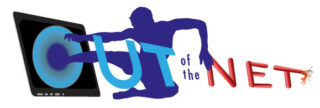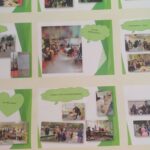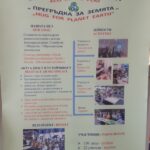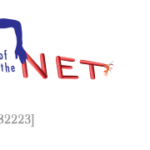
“Out of the Net ” is Strategic Partnership that aims at preventing early school leaving through a new pedagogical methodology developed on strong and innovative socio-psycho-pedagogical bases to tackle a new facing problem in the society: Hikikomori syndrome. More and more students leave the school not because of learning difficulties, but because of emotional, communicative and behavioral problems. The social alienation of the hikikomori is multifactorial and it is often connected with a perceived incapacity in dealing with direct social interaction. As identified by the researchers, the withdrawal is gradual and is connected with the perceived social pressure toward assimilation to certain superficial values.“Out of the Net” aims at preventing social alienation creating a model for a multidimensional educational intervention, involving all the social agencies: schools, out-of-the-school activities and families. The prevention has to start during the primary school period, in the years in which personality and social abilities are developing, to sustain the growth of the children. The project aims at training teachers in the use of teaching strategies that empower the social skills of their students aged 8 to 13. “Out of the Net” wants to prevent social withdrawal through a socio-psycho-pedagogical method promoting real-life group interactions, creating a relational environment in which everyone can express their personal potentialities and empower social skills. These processes will be supported by psychologists, teachers, experts, and the activities held with innovative tools, like art in every dimension, robotics and continuous stimulation in self-recognition. Through the project’s activities, the students will tackle the emotional, communicative and behavior problems that could lead to early school leaving and will develop transversal competencies, knowledge and attitudes that will help them in achieving better academic results.
Thus, the main objectives of “Out of the Net” are:
a) Develop educational intervention for the aware use of the internet and for the prevention of the Hikikomori syndrome and social alienation through creative and socializing artistic and
robotic activities
b) Train teachers and educators to identify the first signals of social alienation and to intervene to re-socialize the children
c) Share good practices for the empowering of social skills and interests as a way to prevent the Hikikomori syndrome
d) Create an educational community through the alliance of school, families and associations
e) Develop an international network of educational institutions committed to prevent social withdrawal through creative recreational activities and educational community engagement
The project has foreseen two training moments. The introductory training will give the participants an overview of the socio-emotional factors that lead to social withdrawal and will provide information about the first signals and the possible answers. This first training will be addressed mainly to parents and representative persons from out-of-the-school educational associations. Teachers will be more specifically trained in a second course on implementing educational activities of different types applying the socio-psycho-pedagogical approach of Out of the Net. A multiplier event in Bulgaria will disseminate the projects’ results to an international audience of policy-makers, decision-makers, university professors, school directors, teachers, parents, representatives of associations, etc.
The outputs produced during the project will be:
– Social, Psychological and Pedagogical approach to Hikikomori Syndrome Prevention in the educational environment
– Out of the Net training modules
– Out of the Net Community
– Good Practices on Hikikomori Syndrome Prevention in the educational environment
– Policy recommendation for the Hikikomori Syndrome Prevention in the educational environment
– Parents’ guidelines to hikikomori and social withdrawal prevention
The partnership of Out of the Net is composed by:
Zespół Szkół I Placówek Specjalnych (Poland), Coordinator
Association ARID (Poland)
Polo Europeo della Conoscenza – Istituto Comprensivo di Bosco Chiesanuova -(Italy)
University of Padua (Italy)
Junta de Educacion Castilla y Leon (Spain)
Panezys Provincial Educational Centre (Lithuania)
Moscow City University (Russian Federation)
KITE (Bulgaria)







